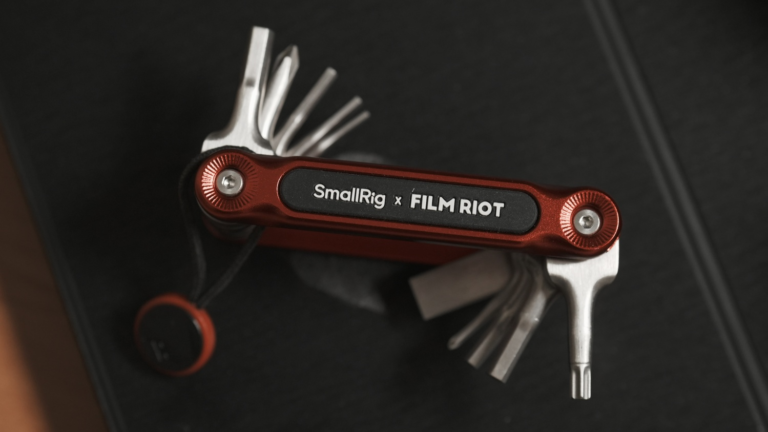Whether going out for a shoot or for personal business, there are tools and accessories that fit a photographer’s lifestyle seamlessly. Here are some EDC accessories that we can recommend.
A photographer’s gear bag is usually divided into at least two sections: one section for the cameras and lenses, and the other for tools and accessories to aid workflow. For most photographers, the set of lenses and cameras changes depending on the specific kind of shoot planned for the day and the exact approach they will take. However, more often than not, the tools and accessories remain the same set regardless of what the shoot for the day requires. In this article, let’s talk about some of the most reliable and efficient accessories that I personally keep in my bag wherever I go.
A pocket multi-tool set would have to top this list. Regardless of what kind of shoot you’re doing for the day, or even a non-photography-related task, any technical or mechanical task can benefit from a set of screwdrivers. For photography, this can be as simple as tightening screws on your tripod, securing a mounting plate, or prying open a stuck battery door.
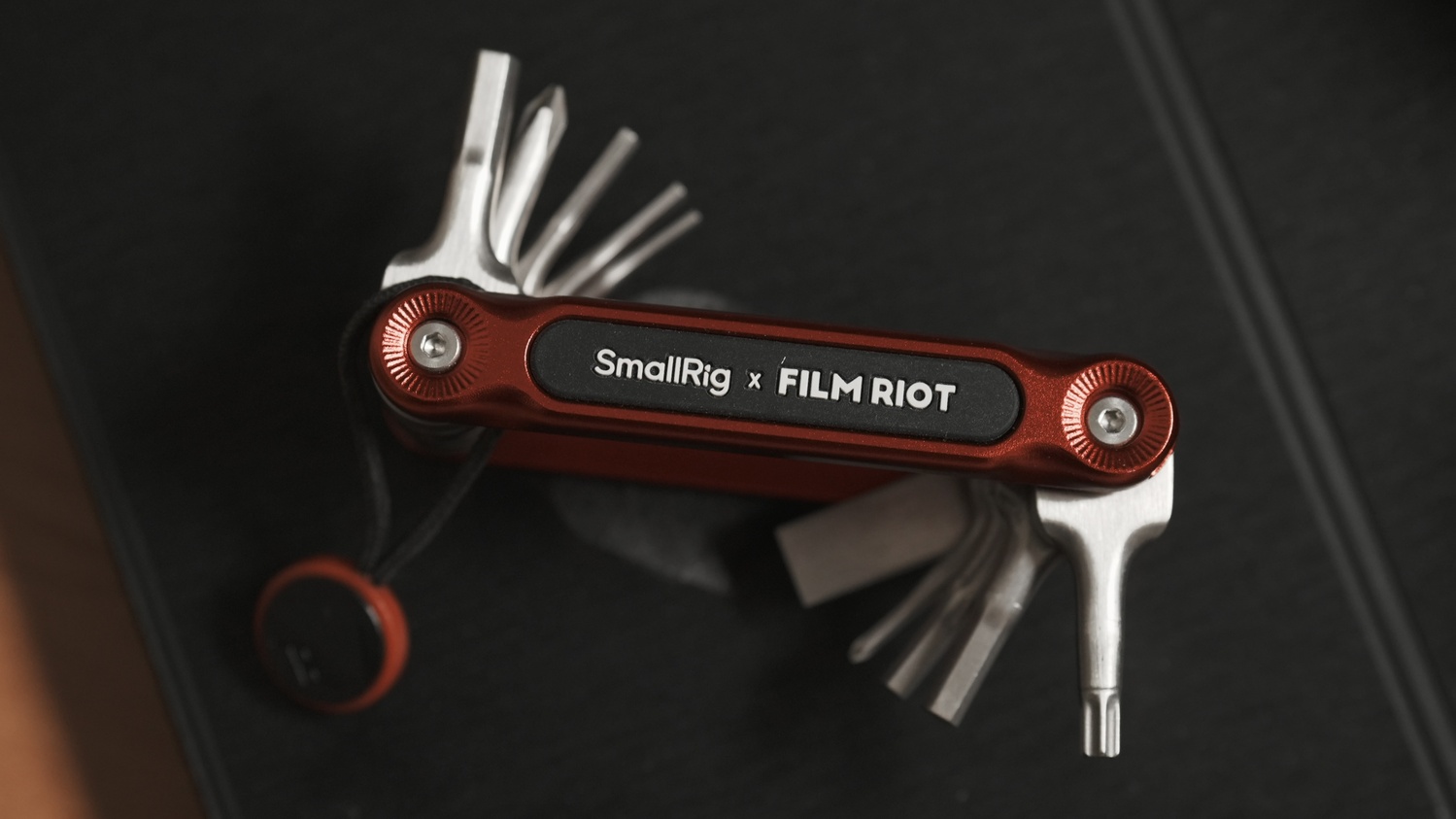
I personally have used a handful of these multi-tools over the past couple of years mainly because I would lose one at an airport after forgetting to remove it from my keys. Currently, I’m using the SmallRig x Filmriot 10-in-1 multi-tool, which packs six different sizes of hex tools, two cross-type heads, one Torx T25, and one large flat screwdriver. The heads conveniently lock at the 90-degree and 180-degree positions, depending on which is more comfortable and efficient for the task.
2. Simple Battery Case
We don’t need to emphasize the importance of extra batteries. In fact, for any crucial job, your extra batteries should have extra batteries. That’s why bringing at least three batteries for every camera body might be the right approach. However, these cases must also be relatively light so as not to add to the bulk of your bag.
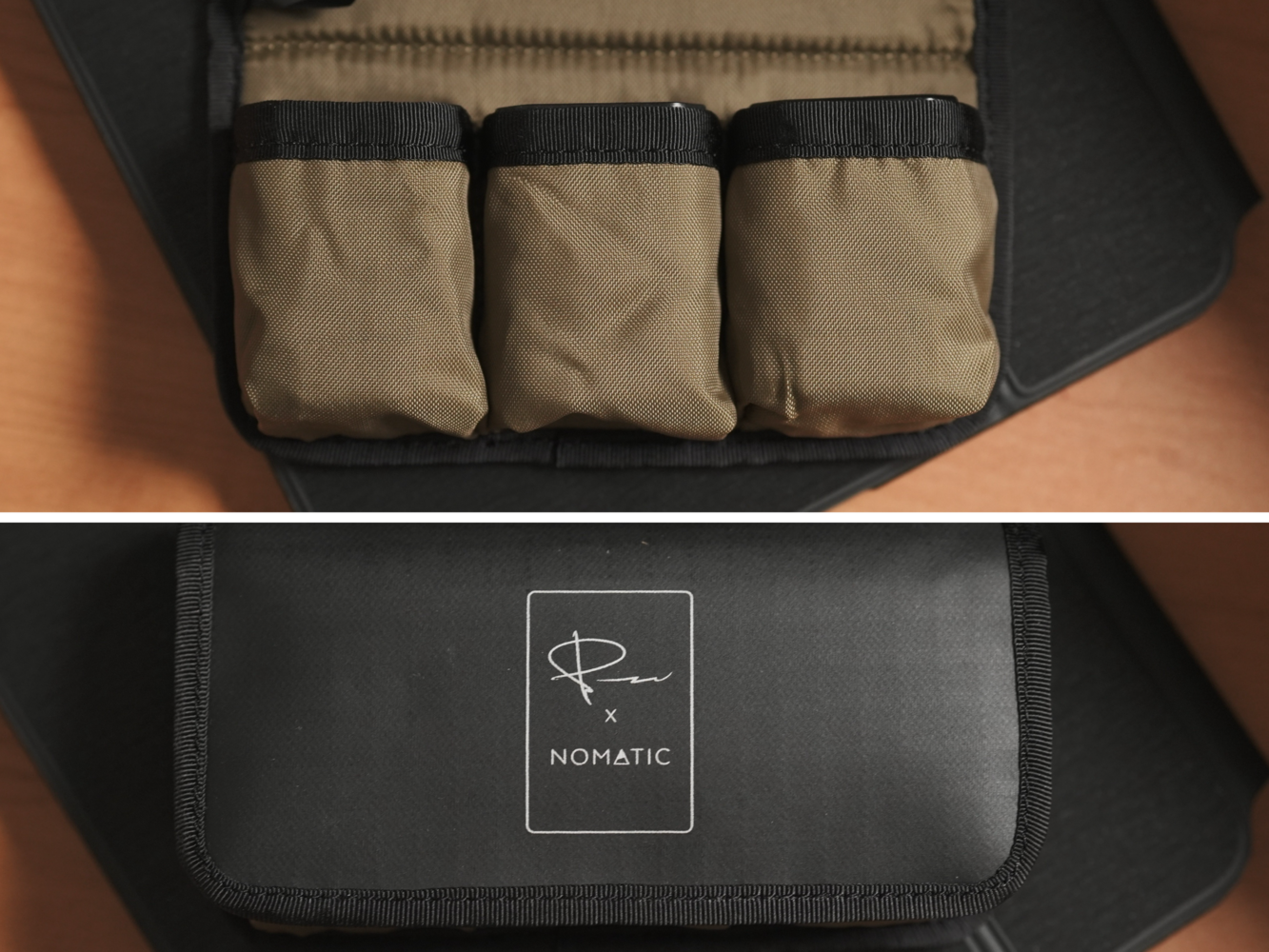
My current battery case is the Nomatic Mckinnon battery case, and this is for a couple of reasons. The first is that it carries three NPF-Z100 batteries (compatible with any battery of this size or smaller) without being too bulky or heavy. The second reason is that I simply like the aesthetics, with its black nylon exterior and dark brown interior.
3. A Smart Charger or Charging Case
For even more crucial tasks or multi-day travels, the soft battery case is paired in my bag with a smart charging case. The ISDT NP2 Go is a dual-slot fast charging case that takes in three different Sony battery types, such as the NPF-Z100, NPFW50, and NP-BX1 for compact cameras. The case has slots for two batteries at a time, with up to two different battery types charging simultaneously. It takes in a USB-C cable input through a port at the back and can be used with any phone or laptop charger you might already have.
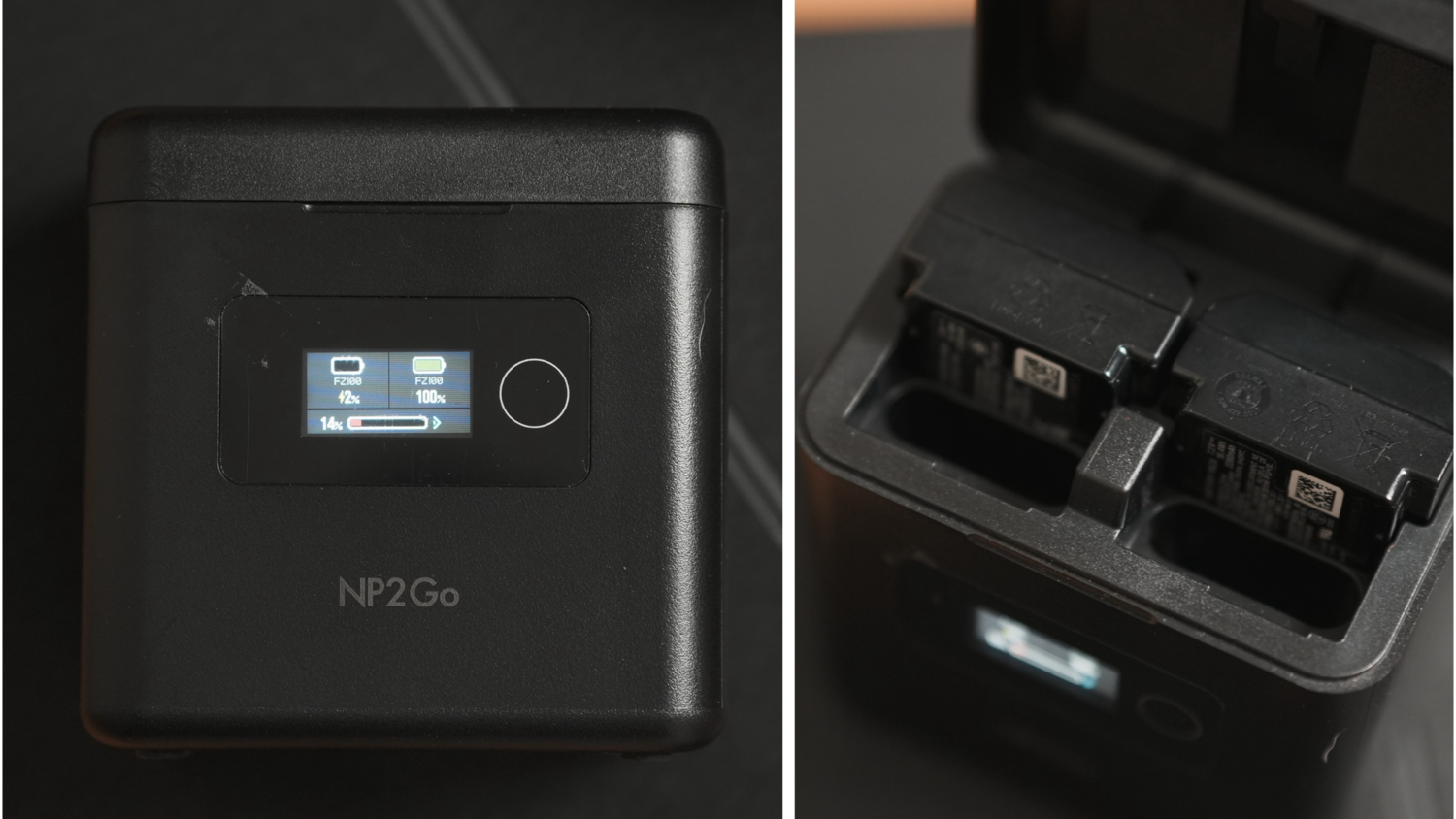
While this one is particularly bulkier, it makes up for it because it packs a 10,000 mAh battery, acting like a power bank for your camera batteries. Whenever a battery is inserted in one of the slots without a USB-C cable supplying power externally, the built-in battery will charge the camera battery on the go. The battery case can fully charge two NPF-Z100 batteries 2.5 times and takes 2.5 hours to recharge from 0 to 100%. As a bonus, you can tap into the built-in battery to charge your phone or other small devices using the same USB-C port used for charging.
4. Mini V-mount Batteries
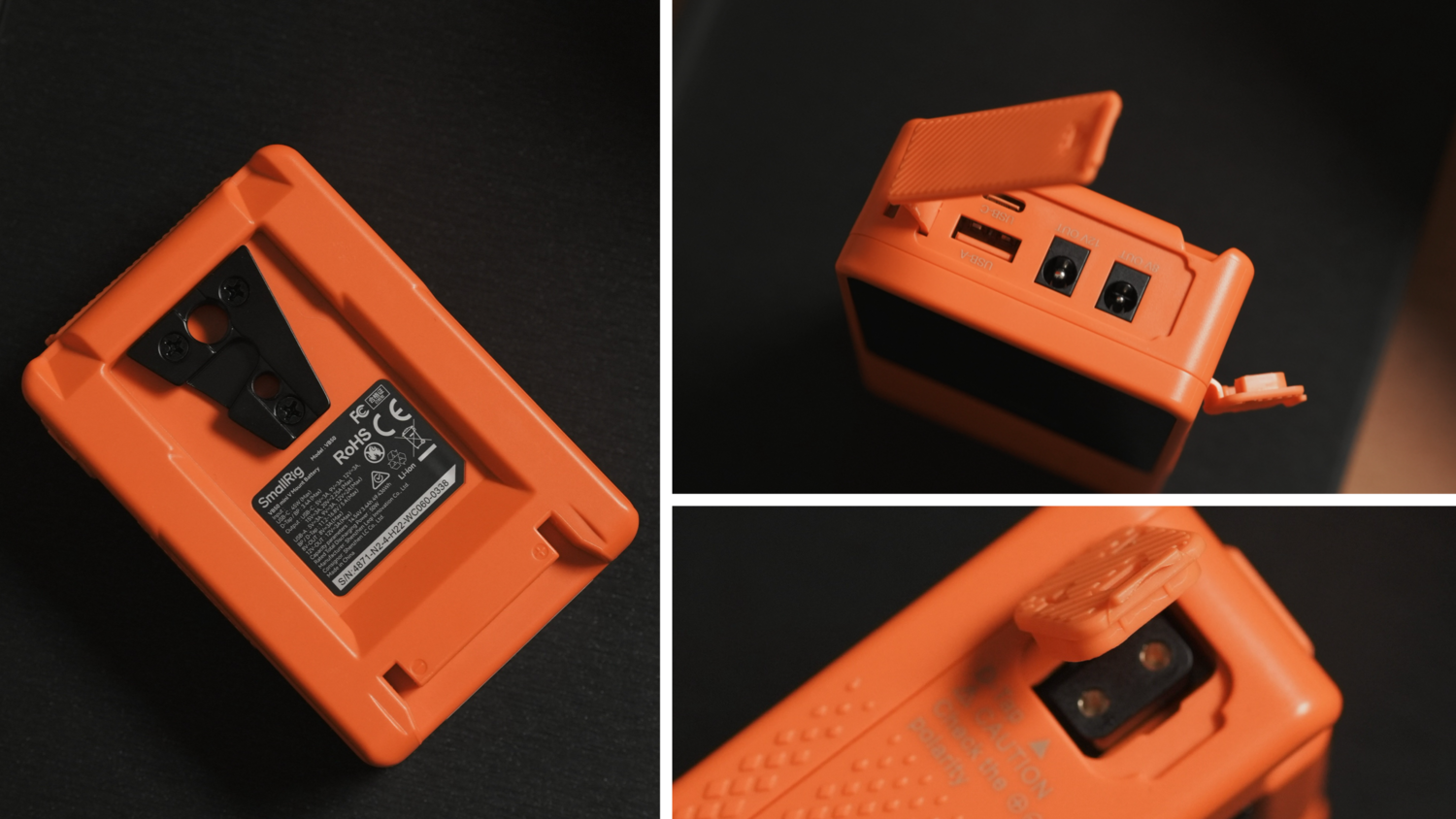
V-mount batteries might not be something that photographers use all the time and definitely not commonly considered as everyday carry. However if you’re someone who uses continuous lights then a mini V-mount might be a sensible alternative to powerbanks for everyday use. Smallrig’s mini V-mount battery, the VB50, is as big or even smaller than a typical high-capacity power bank. It measures just 4.2 x 2.8 x 1.3 inches (107 x 72 x 34 mm) and weighs just 340 grams. This portable battery has a capacity of 50 Wh, an output voltage of 14.8 V, and a maximum load of 12 A. It has a 14.8 V D-tap port on one side, an 8-volt and a 12-volt DC out port, a USB-A port, and a USB-C PD port with a maximum output of 45 W. It comes with a screen that allows you to monitor levels and output rates and features a smart button for quick adjustments.
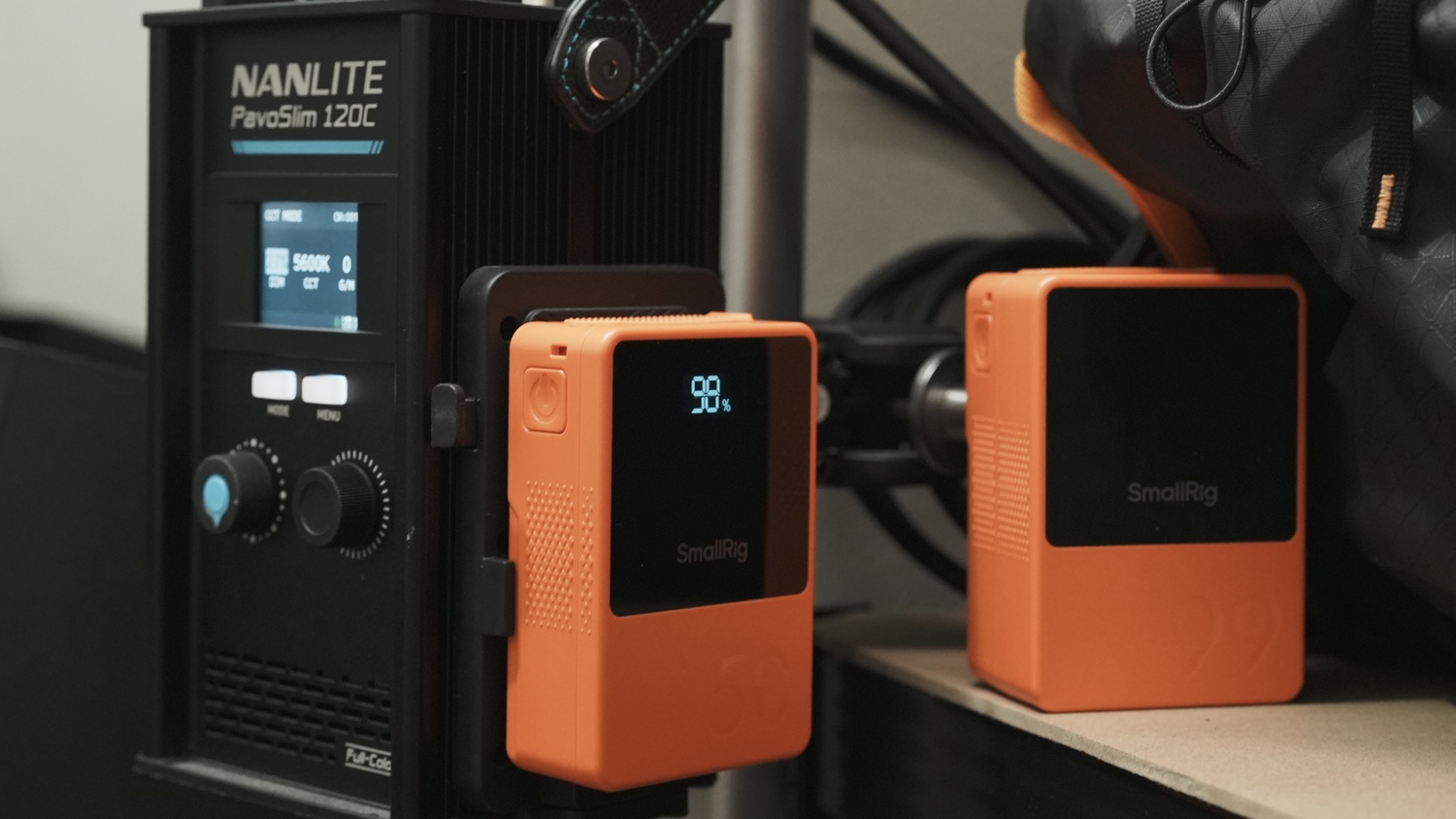
Given the size and capacity of the VB50, it can be useful for charging smartphones, tablets, and even some laptops, as well as camera batteries with USB-C chargers. A practical application would, of course, be as an extra battery for V-mount-powered lights in case of any need for them away from a power outlet. The VB50 complies with airline battery restrictions as it is the smallest option in both size and capacity. For any bigger requirements, specifically for working with lights for a longer span of time than the larger version, the VB99 might be a better option but it probably would not be something sensible to carry everyday.
5. Mini Battery-Operated Blower
A mini blower is a tool you’d never think you’d need until you get to use one. This is especially true for photographers who shoot outdoors a lot. Initially, the use for this would be to blow dust off lenses and even camera sensors, but I personally found more uses whenever I had one with me. For one, when photographing products, having a relatively strong blower can be very helpful to keep dust off what you’re shooting. As a landscape photographer, it comes in handy to blow droplets of water off filters instead of smudging them with a cloth. Afterward, the blower can also be used to remove sand from the legs of tripods before it gets into the creases and locks, which will be much harder to clean later on.
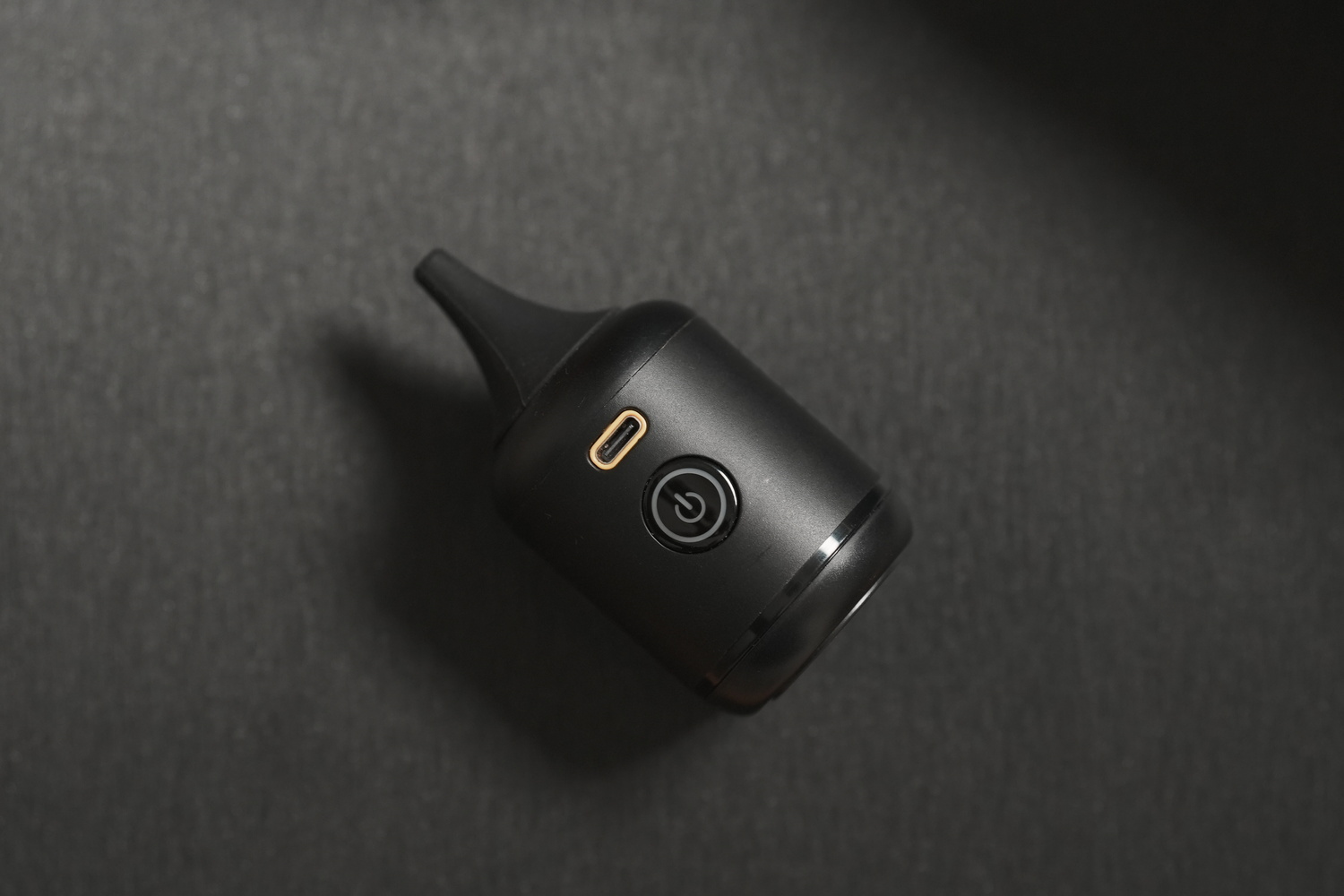
The smallest option I found is the Nitecore BB Nano, which measures just 3.62 x 1.85 inches and weighs just 99 grams. This small blower has a 4.8 Wh battery and a maximum output of 40 km/h windspeed, which is far more than the necessary strength to clean out dust and sand.
Since photography is a mix of both creative and technical tasks, the tools we use for the craft can often also be very helpful for everyday tasks. Everyday tasks can often benefit from things made for specialized tasks, and these instances make them even more worth the purchase.
